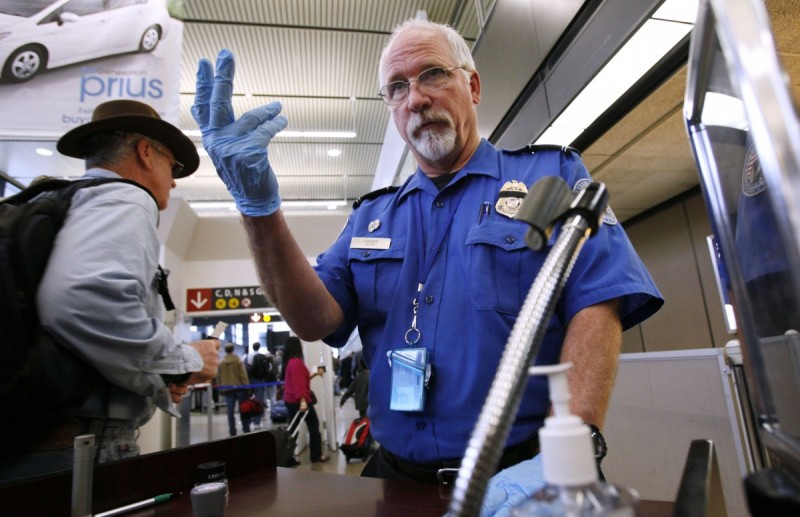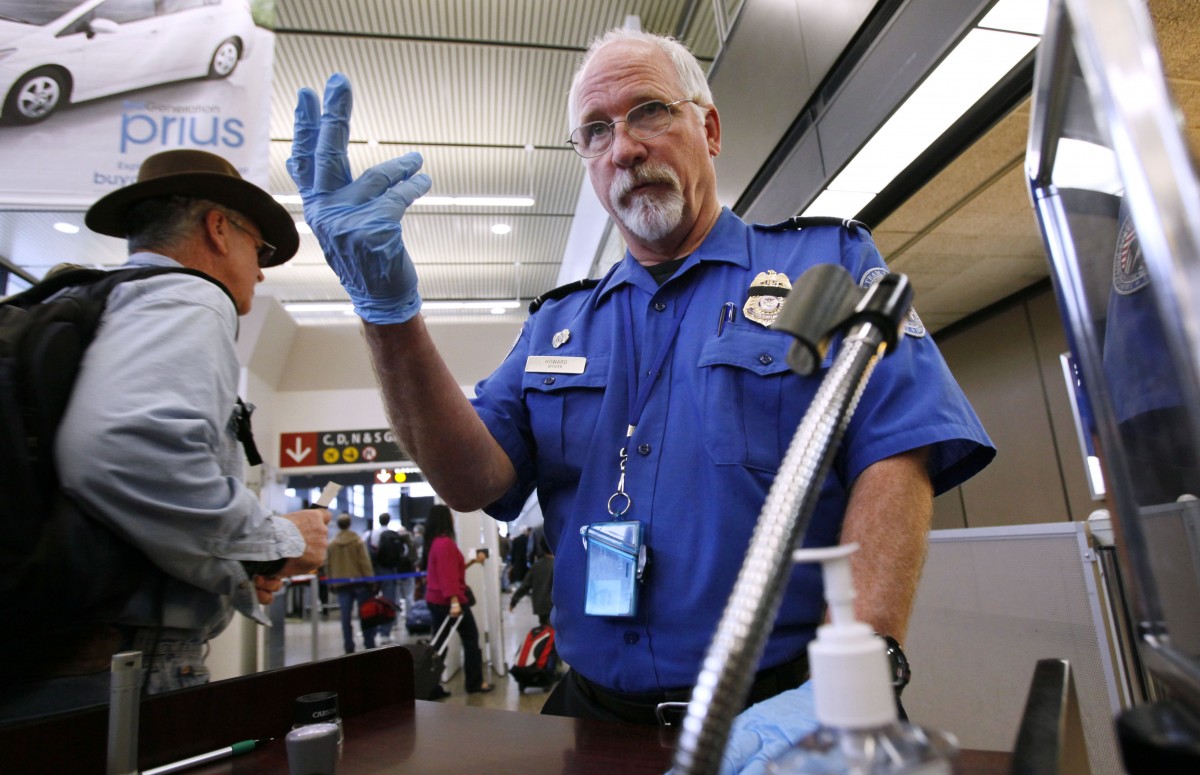
Published in partnership with Shadowproof.
An assistant federal security director for the Transporation Security Agency’s Office of Security Operations in Minneapolis blew the whistle on a request from his supervisors to racially “profile Somali imams and community members visiting” his office.
Testifying at a House Oversight and Government Reform Committee hearing on April 27, Andrew Rhoades indicated it was an instruction his supervisors included in his mid-year evaluation. “I will not do this,” Rhoades declared.
Rhoades also testified he was accused by a supervisor of “going native” because he attended a meeting at a local mosque. He was engaged in “community outreach,” which has been encouraged by Homeland Security director Jeh Johnson, and he was deeply offended by his supervisor.
“I take that to mean I’m somehow converting to Islam,” Rhoades told the Committee. “I’m acting as a native. It’s a disgusting bigoted term, and when I think of that within the context of my written mid-year evaluation that tells me to profile Somali people, I’m disgusted by it. Going native? I’m truly disgusted by it.”
In March 2015, the Minneapolis Star Tribune reported on Mohamed Farah, the executive director of Ka Joog, which is a community organization dedicated to the empowerment of Somali American youth. The Star Tribune highlighted the harassment Farah and other Somali Americans experience when trying to travel through the Twin Cities airport.
“Despite security clearances from the FBI And the US Secret Service, the Somali youth leader from Minneapolis says he cannot board a plane at the Twin Cities airport without being stopped and double-screened by agents,” according to the Star-Tribune. “En route to the White House last month, Farah was pulled aside by local TSA agents, who conducted a body search and uttered a demeaning comment before clearing him. After the summit, he said, he endured the same profiling at Washington’s Reagan International Airport before he boarded a flight home.”
Representative Lacy Clay asked Rhoades about Farah and the fact that an agent said to him, “Were you going to make a run for it if I hadn’t given your ticket back?”
Rhoades was both reluctant to make specific statements about Farah’s case, however, he said, “Whether your black, white, male, female, Somali, Jew, Christian, Hindu, we should treat you the same. And it doesn’t matter if you’re flying on whatever airlines, you should be treated with respect.”
When asked by Clay what could be done so Farah is no longer treated like a second-class citizen, Rhoades suggested the TSA could use resources to put a “passenger support specialist” on Farah when he travels. This would potentially prevent agents from harassing him. Clay was not satisfied and wondered why no agents have been disciplined.
The hearing was convened by the Committee to hear from current TSA employees about retaliation and intimidation, along with other patterns of misconduct within the government agency.
Rhoades described a “culture of misconduct, retaliation, lack of trust, coverups, and the refusal to hold its senior leaders accountable for poor judgment and malfeasance.” He said he was the only TSA employee, whose directed reassignment was accepted by the U.S. Office of Special Counsel. He was to be reassigned to a new office because his supervisors “mistakenly” believed he had leaked information to the media in Minneapolis. (Directed reassignments are used to shift employees to new offices around the country, and during the hearing, there was ample evidence shared on how the reassignments are used to coerce employees into retirement or simply remove undesirable employees.)
According to Rhoades, a TSA assistant administrator sent “provocative messages to a subordinate female under his purview. When questioned by an [Office of Inspection] agent, he lied three times. A recommended penalty for a single lack of candor associated with an official investigation is removal of service.” But high-ranking officials in the TSA office ignored the misconduct and lying, and the person, who sent “provocative messages,” is still employed.
TSA has a “chronic indifference to investigating legitimate complaints,” Rhoades said. “Moreover, my agency counsel employs misconduct and malfeasance, and the vicious cycle continues.”
When the culture is designed to suppress whistleblowers, why should any Muslim American reasonably expect TSA employees to stand against profiling or discrimination against travelers? Rhoades clearly appears to be the exception and not the rule.
The Committee hearing largely ignored the extent to which TSA likely engages in racial profiling of Muslim Americans. Rhoades claimed the request to profile from his supervisors was an “unfortunate incident,” which should not be seen as “reflective of the entire U.S. government.” However, in 2012, it was reported by 30 TSA officers at the Logan International Airport in Boston that a “behavior detection” program was a “magnet for racial profiling.”
Though “Middle Easterners” were disproportionately targeted, the program was also profiling Hispanic and black persons. Part of why this happened is because managers demanded a “high numbers of stops, searches and criminal referrals.” Co-workers believed targeting minorities would likely “yield drugs, outstanding arrest warrants, or immigration problems.”
In 2013, there was more attention on racial profiling by TSA, particularly when a Newark manager directed agents to engage in profiling and made “racial comments” before he was fired.
When President Barack Obama’s administration announced “new curbs on racial profiling” in 2014, the change in policy exempted TSA and U.S. Customs and Border Protection.
It is important to acknowledge the “community outreach” program to Somali American communities in the Twin Cities area has been criticized. The Council on American Islamic Relations in Minnesota has objected the program because it “discriminatorily targets the Muslim and Somali communities, increasing policing and intelligence gathering under the guise of providing social services.” It also means singling out Muslim children in public schools.
Throughout the past year, there has been a stark and disturbing rise in Islamophobia in the United States. Jaylani Hussein, executive director of CAIR Minnesota, said at a press conference in early April, “We have seen an increase of Muslim employees being fired from their jobs in the Twin Cities and the greater Minnesota for religious accommodations. We are concerned about increased bullying in our schools that is targeting Muslim students.”


